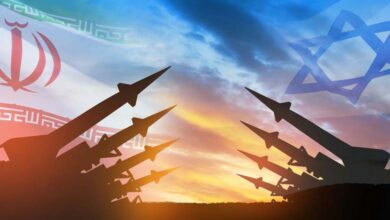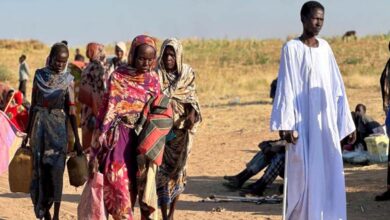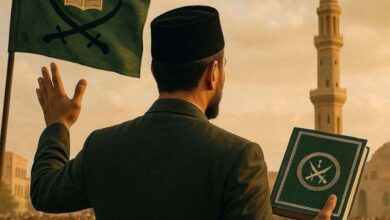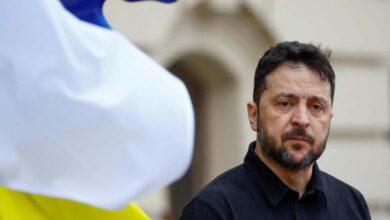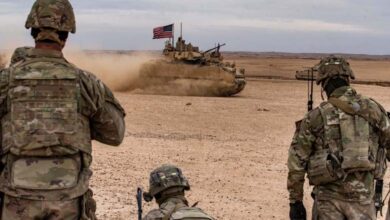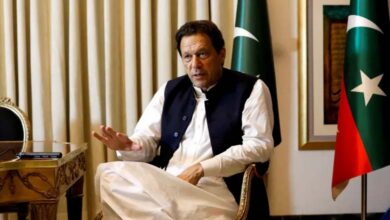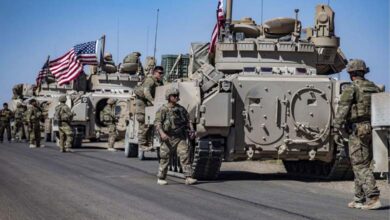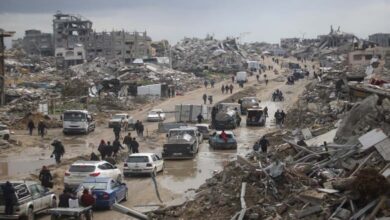The largest since the start of the Gaza war… The People’s Strike paralyzes Israel
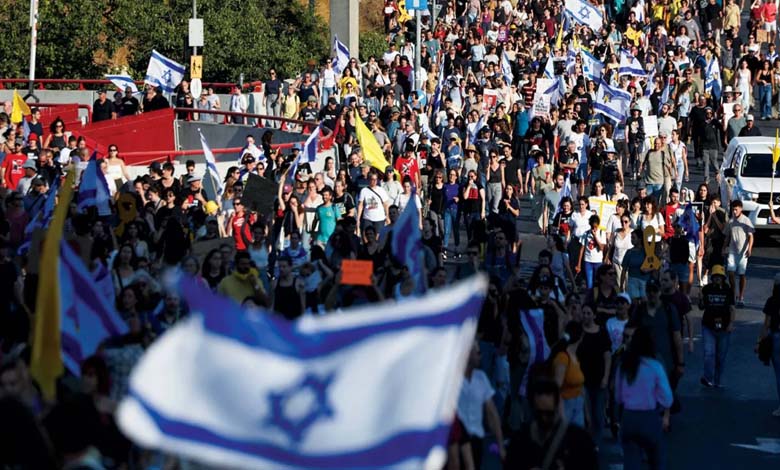
On Sunday, Israel witnessed a massive wave of protests under the slogan “The People’s Strike,” marking the largest popular mobilization since the outbreak of the war on Gaza.
Thousands of demonstrators took to the streets nationwide, demanding a comprehensive deal with Hamas that would lead to the release of all Israeli hostages held since the October 7, 2023 attack.
-
Hostages or Gaza’s Occupation: What Is Netanyahu’s Priority?
-
UAE Carries Out 72nd Humanitarian Airdrop in the Gaza Strip
Streets blocked and clashes
From early morning, rallies began at Tel Aviv’s “Hostages’ Square,” where protesters raised a giant Israeli flag decorated with the images of the captives.
Crowds then moved to block major roads, including the Ayalon Highway, Route 1 (Jerusalem–Tel Aviv), Route 6, and Route 4, in addition to intermittent closures at key junctions such as Sha’ar HaNegev, Na’ale, Shilat, and Karkur.
Police reported the arrest of 11 demonstrators in Tel Aviv on charges of “disturbing public order,” confirming that reinforced units were deployed to reopen the roads.
Tensions flared between protesters and drivers, including an incident where a truck driver attacked demonstrators in Tel Aviv and another in which a female driver slapped a participant in Kfar Saba.
-
Israeli army approves guidelines for Gaza offensive
-
Occupation of Gaza Plan… Israeli Estimates Suggest Fighting Could Last Until 2026
Escalation near the Gaza border
In parallel with the city demonstrations, dozens of protesters launched a march from the “Black Arrow” monument in the Gaza envelope towards the border with the Strip.
Police said they dealt with attempts to breach border points, stressing that it “will not allow the crossing of red lines.”
Families announced the establishment of a new protest tent near the Gaza border starting Monday, stating: “Our patience has run out. Time is running out for the hostages. If we do not bring them back now, we will lose them forever. Only the people will bring them back.”
-
Gaza Sparks a Civil Servants’ Revolt in the European Union
-
Five Al Jazeera Journalists, Including Anas Al-Sharif, Killed in Israeli Airstrike on Gaza
Presidential support and government criticism
Israeli President Isaac Herzog voiced support for the central demonstration in Tel Aviv, saying: “We do not forget you for a single moment. We are doing everything in our power to bring you back. And I say to the world: stop the hypocrisy and exert pressure to release the hostages.”
By contrast, Prime Minister Benjamin Netanyahu, along with ministers and right-wing Knesset members, strongly attacked the strike.
Netanyahu argued that “the demonstrators calling for an end to the war in Gaza are strengthening Hamas’s position.”
-
Israeli Army Preparing to Occupy Gaza City with a Quarter Million Soldiers
-
Israel’s Plan to Seize Control of Gaza: Seven Questions Answered
At the start of the weekly cabinet meeting, he stated, according to a statement from his office: “Those who are calling today to end the war without defeating Hamas are not only strengthening Hamas and delaying the release of our hostages, but also ensuring that the tragedies of October 7 will be repeated.”
Finance Minister Bezalel Smotrich wrote on X: “This campaign is dangerous, it serves Hamas, buries the hostages in the tunnels, and seeks to push the state into surrender.”
Likud MK Hanoch Milwidsky described the demonstrations as “Hamas-supporting riots… Israelis setting the country on fire in an attempt to prevent the elimination of the movement.”
-
After Gaza: Questions over the Fate of Al-Mawasi and the Crowded Central Camps
-
Growing international opposition to Israel’s plan to occupy Gaza
Testimonies from families and released captives
Responding to the criticism, the Hostages’ Families Forum issued a strongly worded statement: “You can continue to hide behind political games, but you cannot escape responsibility. This day will be remembered in the national consciousness: those who stood with the families and those who turned their backs. The excuses are over – bring everyone back now or you will be remembered with shame forever.”
Among the protesters was Noam Peri, daughter of slain hostage Haim Peri, who said: “My father could have been brought back in a deal, but political calculations prevented it. The Prime Minister has the ability to reach a comprehensive agreement, but he chooses to prolong the war.”
-
Netanyahu’s Plan to Occupy Gaza: Months of Military Maneuvers and Civilian Relocation Southward
-
How the Muslim Brotherhood Serves Netanyahu Under the Guise of Solidarity with Gaza
Shimon Buskila, father of a victim of the Nova festival attack, said: “I buried what was dearest to me, and I will not allow other families to pay the same price.”
Eyal Eshel, father of slain soldier Roni Eshel, declared: “The responsibility is collective. Everyone must take to the streets and show solidarity until the hostages return.”
Former hostage Arbel Yehud told the crowd: “I know all too well what it means to be captive. Military pressure will not bring the hostages back; it will kill them. The only solution is a comprehensive deal, without political games. This day must be repeated again and again until all the hostages return.”
Finally, Tami Baruch, mother of slain hostage Sahar Baruch from Kibbutz Be’eri, said: “We will not be able to heal from what we have endured until everyone is back home. I call for a comprehensive deal now, to bring back the living hostages and grant the dead a dignified burial.”
-
Thirst Deepens the Suffering of Gaza’s Residents
-
Stop the Unjust War in Gaza: A Message from 550 Former Israeli Officials to Trump
-
Signed by Over 100 Journalists: International Petition to Break Gaza War Blackout
-
Diaries of a Gaza family: waking up hungry and sleeping on broken hope
-
The Kissufim Truck Overturn: Death Beneath the Wheels of Hunger in Gaza
-
From the Battlefield to the Therapist’s Office: Gaza Haunts Israeli Soldiers Without Firing a Bullet



